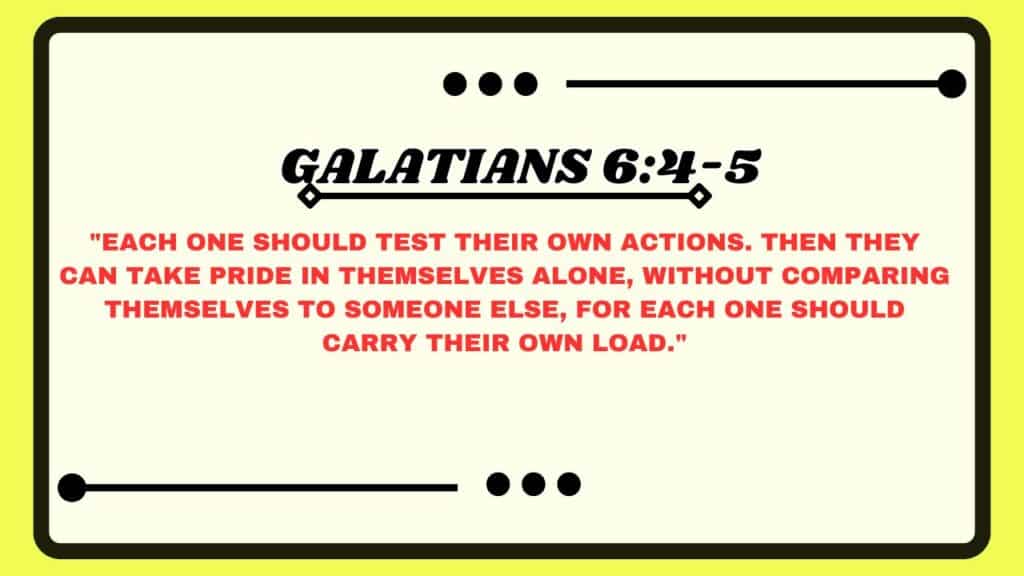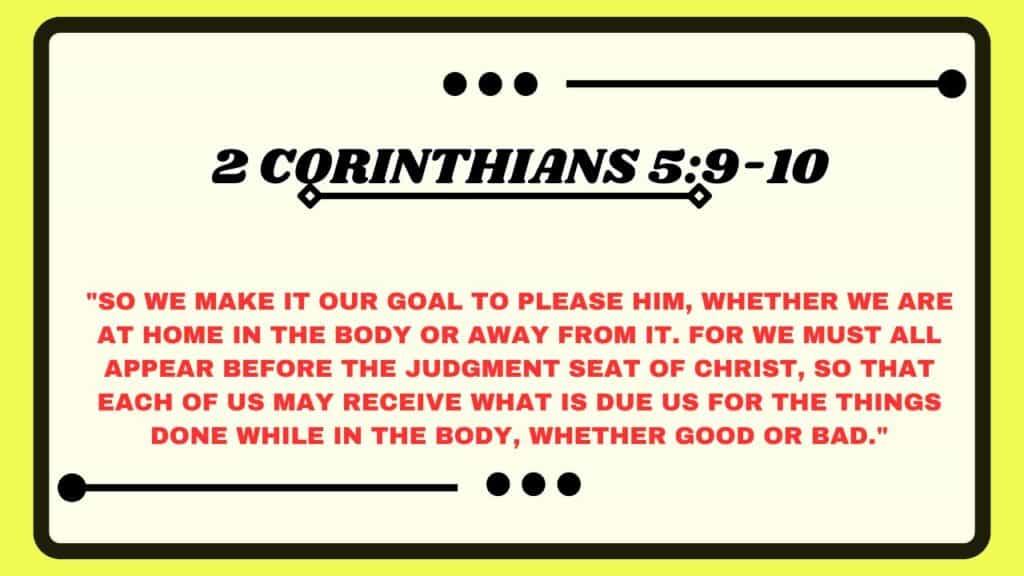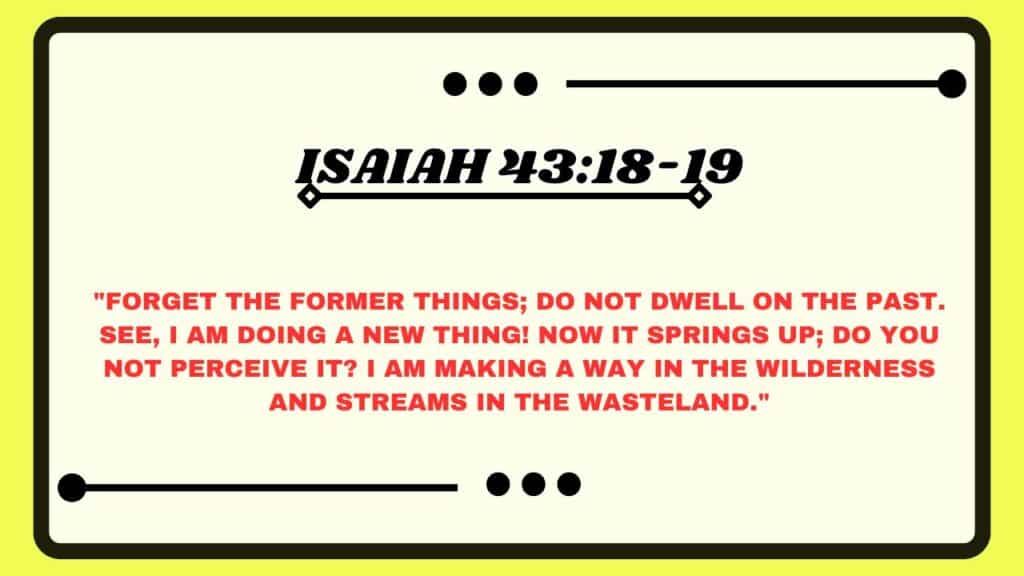Bible Verses About Comparison: In a world constantly urging us to measure ourselves against others, Scripture offers profound wisdom about the spiritual dangers of comparison. The Bible repeatedly warns us that comparing ourselves to others leads to envy, pride, discontentment, and a host of other spiritual challenges that can damage our relationship with God and others.
When we focus on others’ successes, possessions, or blessings instead of our own unique path, we miss God’s individual purpose for our lives. Comparison robs us of joy and gratitude, replacing them with resentment and insecurity.
These 36 verses about comparison reveal God’s perspective: we are each fearfully and wonderfully made with unique gifts and callings. Rather than measuring ourselves against others, we’re called to fix our eyes on Christ and run our own race with perseverance.
Also Read: 37 Important Bible Verses About Loyalty
The Spiritual Dangers of Comparison
2 Corinthians 10:12
“We do not dare to classify or compare ourselves with some who commend themselves. When they measure themselves by themselves and compare themselves with themselves, they are not wise.”
Paul warns against the foolishness of self-comparison, pointing out that those who measure themselves against others lack wisdom. This verse reminds us that human standards of measurement are arbitrary and meaningless in God’s kingdom. Instead of looking sideways at others, we should look upward to God’s standards for our lives.
Galatians 6:4-5
“Each one should test their own actions. Then they can take pride in themselves alone, without comparing themselves to someone else, for each one should carry their own load.”

This verse encourages self-evaluation based on our own actions rather than comparison with others. God wants us to be responsible for our own spiritual growth and conduct. Apply this wisdom by focusing on your personal progress in faith rather than worrying about how you measure up to others.
Philippians 2:3-4
“Do nothing out of selfish ambition or vain conceit. Rather, in humility value others above yourselves, not looking to your own interests but each of you to the interests of the others.”
Paul urges believers to embrace humility and consider others’ needs above their own. Comparison often stems from pride and self-interest. Counter comparison by intentionally serving others and celebrating their successes, which helps cultivate a heart of humility.
1 Corinthians 4:7
“For who makes you different from anyone else? What do you have that you did not receive? And if you did receive it, why do you boast as though you did not?”
This verse reminds us that everything we have comes from God, eliminating any grounds for pride or comparison. Our talents, abilities, and blessings are gifts, not personal achievements. Remember this truth when tempted to feel superior to others or envious of their gifts.
Ecclesiastes 4:4
“And I saw that all toil and all achievement spring from one person’s envy of another. This too is meaningless, a chasing after the wind.”
Solomon observes that much human striving comes from envying others, which ultimately proves empty. Comparison-driven achievement doesn’t satisfy the soul. Instead of working to outdo others, work to honor God with your efforts and find contentment in doing your best.
Also Read: Snowball Kiss Meaning: What Does It Really Mean? (2025)
Finding Your Identity in Christ, Not Comparison
Psalm 139:13-14
“For you created my inmost being; you knit me together in my mother’s womb. I praise you because I am fearfully and wonderfully made; your works are wonderful, I know that full well.”
David celebrates God’s intentional craftsmanship in creating him uniquely. Your design is deliberate, not accidental. Embrace your God-given uniqueness instead of wishing you were more like someone else, recognizing that your differences are divine by design.
Ephesians 2:10
“For we are God’s handiwork, created in Christ Jesus to do good works, which God prepared in advance for us to do.”
Paul affirms that believers are God’s masterpieces, created with specific good works in mind. Your purpose is individual and prepared specifically for you. Focus on discovering and fulfilling your unique calling rather than imitating someone else’s journey.
1 Peter 4:10
“Each of you should use whatever gift you have received to serve others, as faithful stewards of God’s grace in its various forms.”
Peter teaches that our diverse gifts are for service, not competition. Your spiritual gifts are meant to build up the body of Christ. Use your unique abilities to serve others, recognizing that different gifts are necessary for the church to function properly.
Romans 12:4-6
“For just as each of us has one body with many members, and these members do not all have the same function, so in Christ we, though many, form one body, and each member belongs to all the others. We have different gifts, according to the grace given to each of us.”
Paul uses the body metaphor to illustrate how different roles complement each other in the church. Diversity of gifts is by divine design. Appreciate how your unique contribution works together with others’ gifts to accomplish God’s purposes in the community of faith.
1 Corinthians 12:14-18
“Even so the body is not made up of one part but of many. Now if the foot should say, ‘Because I am not a hand, I do not belong to the body,’ it would not for that reason stop being part of the body. And if the ear should say, ‘Because I am not an eye, I do not belong to the body,’ it would not for that reason stop being part of the body. If the whole body were an eye, where would the sense of hearing be? If the whole body were an ear, where would the sense of smell be? But in fact God has placed the parts in the body, every one of them, just as he wanted them to be.”
Paul elaborates on the body metaphor, showing the absurdity of parts wishing they were different. Each component has a vital function that contributes to the whole. Recognize your irreplaceable role in God’s kingdom and resist the temptation to devalue your contribution by comparing it to others’.
Also Read: Ketchum Meanings: Decoding Its Role In Modern Conversations 2025
Overcoming Envy and Jealousy
Proverbs 14:30
“A heart at peace gives life to the body, but envy rots the bones.”
Solomon describes the physical and spiritual consequences of harboring envy. Comparison-driven envy damages us from within. Practice gratitude daily to cultivate a peaceful heart that celebrates others’ blessings without feeling diminished by them.
James 3:16
“For where you have envy and selfish ambition, there you find disorder and every evil practice.”

James warns about the destructive consequences of envy and selfish ambition. Comparison often fuels both these negative motivations. Examine your heart regularly for signs of comparison-based envy, confessing and releasing these feelings to God before they take root.
Proverbs 27:4
“Anger is cruel and fury overwhelming, but who can stand before jealousy?”
This proverb highlights jealousy’s devastating power, even surpassing anger. Comparison-fueled jealousy can destroy relationships and communities. When jealousy arises, acknowledge it quickly and redirect your thoughts to gratitude for your own blessings.
1 Corinthians 13:4
“Love is patient, love is kind. It does not envy, it does not boast, it is not proud.”
Paul teaches that authentic love excludes envy and boasting, both products of comparison. Genuine love celebrates others’ blessings without insecurity. Cultivate love by intentionally rejoicing in others’ successes and asking God to free you from comparison-based responses.
Psalm 37:1-3
“Do not fret because of those who are evil or be envious of those who do wrong; for like the grass they will soon wither, like green plants they will soon die away. Trust in the LORD and do good; dwell in the land and enjoy safe pasture.”
David advises against envying even the temporary success of wrongdoers. Comparison distorts our perspective on others’ apparent advantages. Focus instead on trusting God and doing good, knowing that God’s justice will ultimately prevail.
Also Read: El Gallo Meaning: Symbolism, Slang & Cultural Significance (2025)
Contentment as the Antidote to Comparison
Philippians 4:11-13
“I am not saying this because I am in need, for I have learned to be content whatever the circumstances. I know what it is to be in need, and I know what it is to have plenty. I have learned the secret of being content in any and every situation, whether well fed or hungry, whether living in plenty or in want. I can do all this through him who gives me strength.”
Paul shares his journey to contentment regardless of circumstances. Contentment is learned, not innate, and comes through Christ’s strength. Practice identifying God’s provisions in your current situation, rather than focusing on what others have that you lack.
1 Timothy 6:6-8
“But godliness with contentment is great gain. For we brought nothing into the world, and we can take nothing out of it. But if we have food and clothing, we will be content with that.”
Paul reminds Timothy that true wealth lies in godly contentment, not material possessions. Comparison often revolves around material things that are temporary. Simplify your expectations and regularly express gratitude for basic provisions to foster contentment.
Hebrews 13:5
“Keep your lives free from the love of money and be content with what you have, because God has said, ‘Never will I leave you; never will I forsake you.'”
The writer bases contentment on God’s faithful presence, not changing circumstances. God’s presence is our greatest treasure. When tempted to compare your provisions with others, remember that God’s presence in your life outweighs any material blessing.
Proverbs 30:8-9
“Keep falsehood and lies far from me; give me neither poverty nor riches, but give me only my daily bread. Otherwise, I may have too much and disown you and say, ‘Who is the LORD?’ Or I may become poor and steal, and so dishonor the name of my God.”
This prayer seeks balance in material provision to avoid spiritual pitfalls. Both excess and lack can become spiritual dangers. Pray for God’s wisdom to be satisfied with “enough” rather than constantly seeking more based on what others have.
Ecclesiastes 6:9
“Better what the eye sees than the roving of the appetite. This too is meaningless, a chasing after the wind.”
Solomon observes that enjoying what you have brings more satisfaction than craving what you don’t. Comparison feeds insatiable desire. Practice mindful appreciation of your current blessings rather than allowing your appetite to constantly rove toward others’ possessions.
Also Read: Unexpected Spiritual Meaning Of Owl Hooting At Night
Looking to God’s Standards, Not Others’
2 Corinthians 5:9-10
“So we make it our goal to please him, whether we are at home in the body or away from it. For we must all appear before the judgment seat of Christ, so that each of us may receive what is due us for the things done while in the body, whether good or bad.”

Paul directs our focus to pleasing Christ rather than impressing others. We will ultimately answer to God, not to peers. Make decisions based on what honors God rather than what compares favorably with others’ choices or achievements.
Galatians 1:10
“Am I now trying to win the approval of human beings, or of God? Or am I trying to please people? If I were still trying to please people, I would not be a servant of Christ.”
Paul questions whether his motivation is pleasing God or people. Comparison often stems from seeking human approval. Regularly examine your motives, asking whether your actions aim to impress others or to honor Christ.
Matthew 25:14-30
“For it will be like a man going on a journey, who called his servants and entrusted to them his property…” (The Parable of the Talents)
Jesus teaches about faithfulness with what we’ve individually been given. God evaluates us based on our stewardship of our own gifts, not comparison with others. Focus on maximizing what God has specifically entrusted to you rather than wishing for someone else’s assignment.
1 Thessalonians 4:11-12
“…and to make it your ambition to lead a quiet life: You should mind your own business and work with your hands, just as we told you, so that your daily life may win the respect of outsiders and so that you will not be dependent on anybody.”
Paul encourages focusing on your own responsibilities rather than others’ affairs. Comparison often leads to neglecting our own duties. Find dignity in faithfully handling your own work and responsibilities without constantly looking at how others are doing.
Colossians 3:23-24
“Whatever you do, work at it with all your heart, as working for the Lord, not for human masters, since you know that you will receive an inheritance from the Lord as a reward. It is the Lord Christ you are serving.”
Paul redirects our work motivation from human approval to divine service. Working for God’s approval frees us from comparison. Approach each task as service to Christ, focusing on excellence rather than on how your performance compares to others.
Also Read: Poison Tree Tattoo Meaning: The Deep Symbolism Behind Blake’s Dark Masterpiece In 2025
Running Your Own Race
Hebrews 12:1-2
“Therefore, since we are surrounded by such a great cloud of witnesses, let us throw off everything that hinders and the sin that so easily entangles. And let us run with perseverance the race marked out for us, fixing our eyes on Jesus, the pioneer and perfecter of faith.”
The writer uses a race metaphor to emphasize our individual spiritual journeys. Each believer has a unique course to run with Jesus as the focus. Keep your eyes fixed on Christ rather than looking sideways at other runners, remembering that your path is specifically marked out for you.
1 Corinthians 9:24-27
“Do you not know that in a race all the runners run, but only one gets the prize? Run in such a way as to get the prize. Everyone who competes in the games goes into strict training. They do it to get a crown that will not last, but we do it to get a crown that will last forever. Therefore I do not run like someone running aimlessly; I do not fight like a boxer beating the air. No, I strike a blow to my body and make it my slave so that after I have preached to others, I myself will not be disqualified for the prize.”
Paul emphasizes disciplined focus in running our spiritual race. Effective spiritual growth requires intentional discipline, not comparison. Establish personal spiritual disciplines that work for your unique temperament and circumstances rather than imitating someone else’s practices.
Philippians 3:12-14
“Not that I have already obtained all this, or have already arrived at my goal, but I press on to take hold of that for which Christ Jesus took hold of me. Brothers and sisters, I do not consider myself yet to have taken hold of it. But one thing I do: Forgetting what is behind and straining toward what is ahead, I press on toward the goal to win the prize for which God has called me heavenward in Christ Jesus.”
Paul describes his forward-focused approach to spiritual growth. Looking backward at others or yourself hinders progress. Focus on your next step of obedience rather than comparing your current position with others or dwelling on past failures.
Jeremiah 29:11
“For I know the plans I have for you,” declares the LORD, “plans to prosper you and not to harm you, plans to give you hope and a future.”
God assures His people of His good plans for their future. God’s plans for you are custom-designed. Trust in God’s specific plan for your life rather than assuming His will for you matches His will for someone else.
Isaiah 43:18-19
“Forget the former things; do not dwell on the past. See, I am doing a new thing! Now it springs up; do you not perceive it? I am making a way in the wilderness and streams in the wasteland.”

God encourages His people to look forward to His new work rather than backward. Comparison often keeps us looking back at others’ paths. Remain alert to God’s fresh work in your life, which may look entirely different from His work in others’ lives.
Also Read: 37 Bible Verses About Pruning
Conclusion: Bible Verses About Comparison
These 36 Bible verses about comparison reveal a consistent message throughout Scripture: God created each of us uniquely, with different gifts, callings, and paths. When we compare ourselves to others, we not only dishonor God’s intentional design but also rob ourselves of joy and contentment.
Instead of measuring our worth, success, or blessings against others, God calls us to fix our eyes on Christ, steward what we’ve been given, and run our own race with perseverance. True freedom comes when we embrace our God-given identity and purpose without the distraction of comparison.
As you meditate on these verses, allow them to transform your thinking from comparison to contentment, from envy to gratitude, and from competition to celebration of others’ successes. Remember that in God’s economy, faithfulness with what He’s given you—not how it compares with others—is what truly matters.
Bonus: Practical Applications for Overcoming Comparison
- Scripture Memorization: Choose 3-5 verses from this list that particularly speak to your struggles with comparison and commit them to memory.
- Gratitude Journal: Start a daily practice of writing down three specific blessings in your life to cultivate contentment.
- Social Media Fast: Consider taking a break from platforms that trigger comparison thoughts.
- Celebration Practice: Intentionally celebrate others’ successes with genuine joy, perhaps by sending an encouraging note or gift.
- Identity Reminders: Place reminders of your identity in Christ in visible places (on mirrors, phone backgrounds, etc.).
- Prayer Partner: Find someone who can pray with you specifically about comparison struggles.
- Service Focus: When comparison thoughts arise, redirect your energy to serving others instead.
- Gift Inventory: Take time to identify your unique spiritual gifts and how God might want you to use them.
- Thought Capture: Practice recognizing comparison thoughts and immediately replacing them with truth from Scripture.
- Accountability: Share your struggle with a trusted friend who can gently point out when you’re falling into comparison.
Frequently Asked Questions
Is all comparison wrong according to the Bible?
Not necessarily. The Bible distinguishes between harmful comparison (measuring ourselves against others to determine worth or success) and beneficial comparison (looking to godly examples as inspiration). Paul says in 1 Corinthians 11:1, “Follow my example, as I follow the example of Christ.” The key is motivation—are we comparing to compete and feel superior/inferior, or to learn and grow?
What does the Bible say about comparing ourselves to our past selves?
Healthy self-evaluation is encouraged in Scripture. Galatians 6:4 says, “Each one should test their own actions.” Comparing your current self to your past self can be productive when focused on spiritual growth rather than worldly measures of success. The goal is progress in Christlikeness, not perfection.
How can I stop comparing myself to others?
Start by identifying comparison triggers and limit exposure when possible. Replace comparison thoughts with gratitude and Scripture truth. Focus on your unique calling and gifts. Pray for God to transform your thinking. Remember that comparison is often a spiritual battle requiring spiritual weapons (2 Corinthians 10:3-5).
What if someone else’s success genuinely makes me feel inadequate?
These feelings are common but can be addressed through biblical truth. Remember that your worth comes from being God’s child, not your achievements. Ask God to help you celebrate others’ successes while trusting His timing and plan for your life. Consider whether your feelings reveal an area where you need healing or a false belief that needs correction.
Does God compare us to each other?
God evaluates us individually based on our faithfulness with what He’s given us, not in comparison to others. The Parable of the Talents (Matthew 25:14-30) shows servants receiving different amounts but being judged on their individual stewardship. God knows our unique circumstances, limitations, and opportunities, and judges accordingly.
Read more knowledgeable blogs on Biblical Go

Piper McMillan is a devoted writer and Bible enthusiast, offering insightful guides on Bible verses. Her blog provides practical interpretations and reflections, helping readers deepen their faith and understanding of Scripture through accessible and inspiring content.



